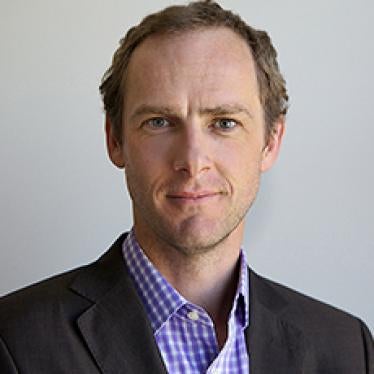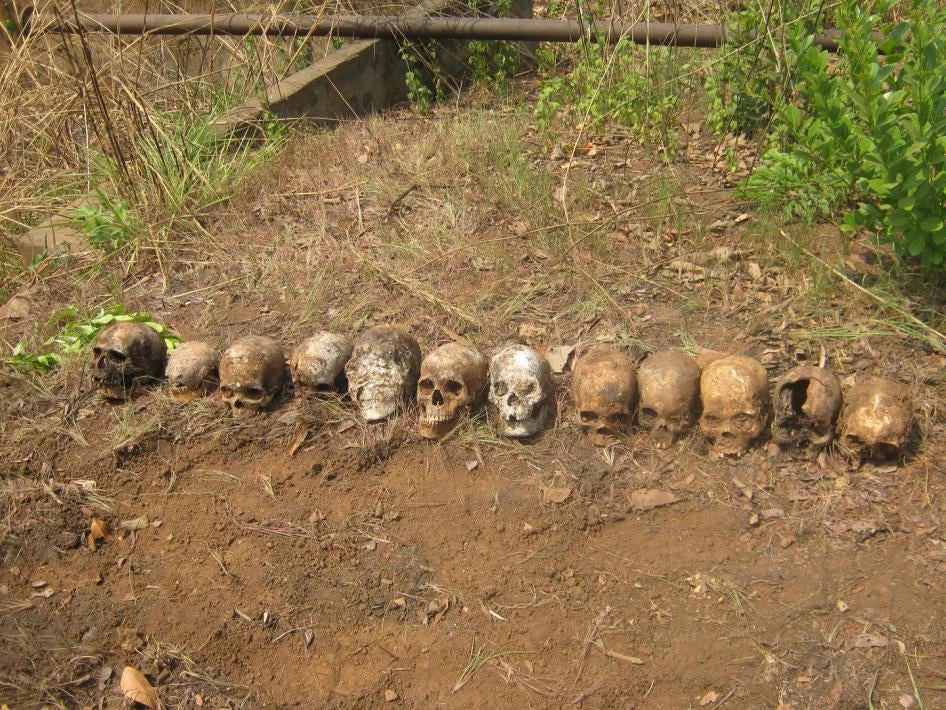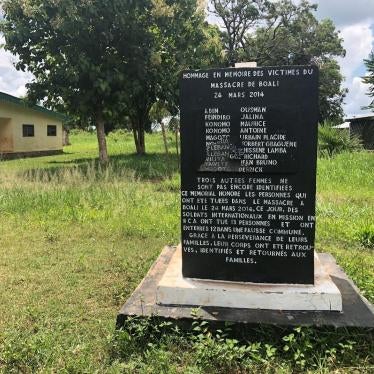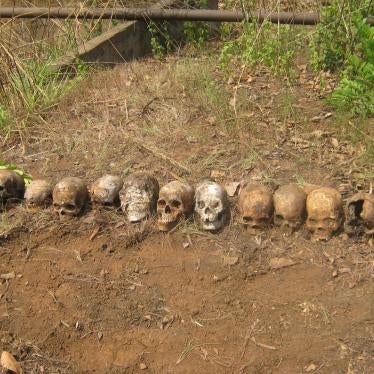At the beginning of a brutal civil war in the Central African Republic, in 2012, African Union (AU) peacekeepers were deployed to try to stop attacks on civilians and bring stability to the country, in a mission known as MISCA. Yet, not only were they powerless to stop the bloodshed, but in at least one gruesome case, the peacekeepers themselves carried out cold-blooded attacks, then tried to cover up the evidence.
On March 24, 2014, tensions flared between MISCA peacekeepers from Congo-Brazzaville and the anti-balaka, an armed group drawn predominantly from Christian communities, in Boali. After an escalation, the self-declared anti-balaka general, Maurice Konomo, ordered his men to “go to war” against the MISCA soldiers. One peacekeeper was killed. Enraged after the killing of one of their own, a group of about 20 Congolese MISCA soldiers went to Konomo’s house and surrounded it, shooting dead one boy.
The Congolese peacekeepers then detained 12 people, including women and children. The detainees were taken to MISCA officers’ residences near their base in Boali. The peacekeepers ordered all the civilians in the area into their homes. Residents reported hearing gunshots later that night and the next day found traces of blood in various locations, including at the water pump where peacekeepers had cleaned their vehicles.
The day after the attack, the peacekeepers issued a news release condemning the murder of the peacekeepers in Boali and saying that armed men killed him. They said that their troops returned fire, killing 12 assailants, whom they later identified as anti-balaka. Months later MISCA admitted to a team from the United Nations’ international commission of inquiry that the news release did not reflect what had really happened and said that it had been released too quickly.
While the AU promised investigations and said that an internal report had been drafted, it appears as though it was only stalling for time. In September 2014, the African Union peacekeeping role was to be handed over to a UN mission, and officials at the AU seemed to hope this case would go away.
On June 5, 2015, the Office of the United Nations High Commissioner for Human Rights published a report in which it found the MISCA troops had committed acts of enforced disappearances, torture and extrajudicial killings at Boali. Then in 2016, the remains of the 12 people the peacekeepers detained were found in an exhumed grave near the UN peacekeeping base.
Human Rights Watch carried out its own investigations from 2014 to 2016 and concluded that the peacekeepers committed the murders. In 2017, experts from the Columbia Law School Human Rights Clinic and the Argentine Forensic Anthropology Team assisted Central African authorities in further investigating the murders and in November, a forensics report was handed to the Central African investigating judge.
The evidence, both from witnesses and from the exhumations is clear: AU peacekeepers carried out an egregious crime, murdering the very people they had been sent to protect.
Impunity is a key driver of conflict in the Central African Republic. Since the predominantly Muslim militia, the Seleka, started an offensive in 2012, very few people responsible for serious crimes have been held responsible. Authorities from Congo first denied allegations their men had committed murder, but the attention to the case seems to have prompted some action. In 2016, justice officials from the Congo requested information from Central African authorities on this case, and detained three of its peacekeepers, including the commanding officer in Boali, Bonaventure Abena.
The three peacekeepers were tried in Brazzaville in April 2018. It could have been a chance for Congolese authorities to set an example and show that international peacekeepers found guilty of serious crimes would be held accountable and punished appropriately. Instead, they shared little information with the public, their Central African counterparts, and the victims’ families. The three men were found guilty of war crimes but given sentences of just three years. They are now free.
The lenient sentences send a deeply disappointing message on accountability for peacekeepers’ crimes -- as dozens of other peacekeepers, including from the UN, face allegations of murder and sexual exploitation and abuse. But beyond that, they deny justice to family members of the victims. In a letter addressed to the Congolese court published on August 9, an association of family members of Boali victims declared they were appalled by the short sentences and indignant at not having been invited to participate in the trial. The association asks for clarification about how such light sentences were given and, if the explanation is not sufficient, they ask the court to reconsider its decision.
The victims’ families also want compensation. They are contemplating a civil trial against the convicted men, but this will be difficult to arrange in another country and jurisdiction, without support. Here is where the AU can salvage something positive from this situation. First, it should publish its 2014 report on these killings and outline how the institution can better hold its own peacekeepers accused of serious crimes to account. Second, it should support the families in their civil case against the peacekeepers in Congo. Third, it should closely monitor the trial and issue public statements after the verdict.
The sentences handed down by the Congolese courts are a serious injustice, but the AU can still do some right by the victims’ families.










